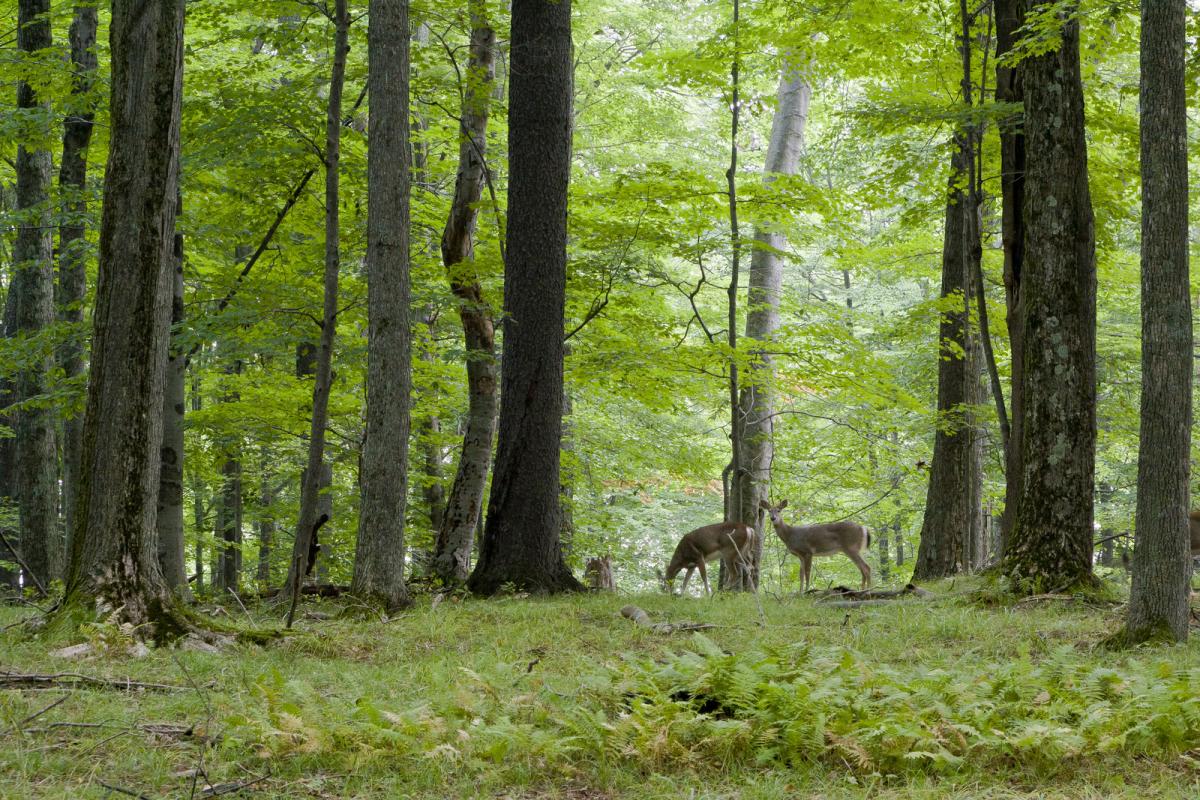The Community Deer Advisor is a collaboration between Cornell University and The Nature Conservancy to help communities successfully manage deer at a local level.
Community-based deer management (CBDM) is the foundation for the Community Deer Advisor. Our recommendations on negotiating the process of CBDM are based on social science research and lessons learned from case studies in multiple states.
The Deer Advisor offers resources to help with community deer management such as:
 A useful process for structuring your program.
A useful process for structuring your program.- Recommended best practices, including education, communication, and stakeholder engagement.
- Community examples from across the United States.
- An opportunity to share your community's story.
- A "starter kit" for community-based deer management.
- An online course to help you develop a community-based deer management plan.
Contributing Organizations

The Human Dimensions Research Unit (HDRU) in the Department of Natural Resources at Cornell University studies the social and economic aspects of natural resources and the environment and the application of social and economic insights in management planning and policy. HDRU has conducted multiple investigations on human-wildlife conflict and community-based deer management.

The Nature Conservancy is a leading science-based conservation organization working around the world to protect ecologically important lands and waters for nature and people. It aims to address the most pressing conservation threats at the largest scale. Founded in 1951 and supported by over 1 million members, it has protected more than 119 million acres of land and thousands of miles of rivers worldwide, and operates more than 100 marine conservation projects globally.
Acknowledgements
The inquiry informing this work was supported in part by the USDA National Institute of Food and Agriculture, Hatch project 1004275. Any opinions, findings, conclusions, or recommendations expressed in this publication are those of the author(s) and do not necessarily reflect the view of the National Institute of Food and Agriculture (NIFA) or the United States Department of Agriculture (USDA).
This work was supported in part by Cornell University's David R. Atkinson Center for a Sustainable Future (ACSF), and The Nature Conservancy's Science Impact Project and the Cox Family Fund for Science and Research.
We acknowledge with appreciation the important contributions of individuals from the New York State Department of Environmental Conservation and Cornell Cooperative Extension who provided valuable feedback and input on this website's development and content.
Photo Credits
Thanks to the individuals and organizations that have allowed us to use their photos on this website through direct contributions and through Creative Commons licensing. Attribution for all photos used on this site can be found on our photo credits page.

